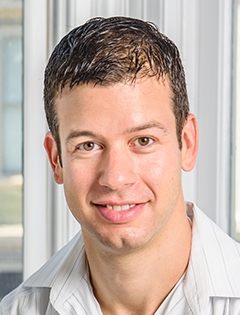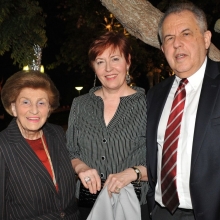Keeping data private in a public world
Introducing Dr. Guy Rothblum
Briefs

Israel is a world leader in data security, and that leadership can be traced directly to the Weizmann Institute, where researchers like Profs. Adi Shamir and Shafi Goldwasser—both recipients of the ACM Turing Award, known as computer science’s Nobel Prize - pioneered the encryption methods that form the basic “checks and balances” of online communications.
While such methods still govern the safe sharing of digital data, explosive growth of the Internet - along with powerful new data gathering techniques and ubiquitous, long-term data storage - are creating major new challenges for privacy.
These are the challenges that fascinate Dr. Guy Rothblum, a recently recruited researcher in the Department of Computer Science and Applied Mathematics.
“In the age of data, there is sensitive information being collected all the time,” says Dr. Rothblum, who did his masters training at the Institute with Prof. Moni Naor before traveling to Boston for his doctorate under Prof. Goldwasser (who holds joint appointments at both the Weizmann Institute and MIT). “Along with the personal information that we share on social networks, large organizations and governments automatically collect and store a wide range of data - from our online purchases, to the websites we visit, to an exact history of our clicks, likes, and shares–without asking our permission.”
Most of us don’t mind the data collection that sends us targeted advertisements online, or allows Amazon to figure out what we might like to put in our virtual shopping cart. But according to Dr. Rothblum, when organizations mine data, and then use the results in public, “horror stories” can occur.
Back in the 1990s, an insurance commission decided to contribute to medical research by sharing anonymized data about state employees’ hospital visits. But while the commission carefully removed all the obvious identifiers - like names, addresses and social security numbers - it turned out to be possible to re-match data with individuals, by running the data against publicly available voter registries. This exercise in (lack of) privacy was carried out by a graduate student in computer science who then “published” her results in a dramatic way; the data vulnerability was demonstrated by “de-anonymizing” specific hospital records and then delivering one of them them - together with diagnoses and prescriptions - to its rightful owner: the Governor of Massachusetts.
“These days, data security is not just about hiding secrets from criminal hackers, and organizations share data for all sorts of legitimate reasons,” Dr. Rothblum says. “The problem is, the public use of such data can have serious personal consequences.”
Dr. Rothblum already has plenty of experience examining societal issues related to privacy in both academic and industrial settings. After completing a postdoctoral fellowship at Princeton University, he spent three years at Microsoft, where he was part of a team charged with advancing science - and ensuring Microsoft’s future - by examining how privacy and cryptography impact new technology. Here, he hopes that his theoretical approach will result in a rigorous, mathematical definition of what privacy means in a changing world.
“We should be able to arrive at aggregate results of data that provide benefits for society, while protecting the privacy of individuals,” he says. “Ultimately, this depends on how we use the ever-increasing amount of data generated through the use of modern technologies.”
Rothblum is an Israeli-American born into an academic family; his father was on faculty both at Yale University and at the Technion, and his younger brother - a Weizmann-trained scientist - is now doing postdoctoral work with Prof. Goldwasser at MIT. But after many years in the United States, Rothblum feels fortunate to be back in Rehovot.
“As a new faculty member, I’m just getting to know things from the inside, but the data all points to one thing,” he says. “I can’t imagine a better environment than the Weizmann Institute for pursuing my research.”

Dr. Guy Rothblum








